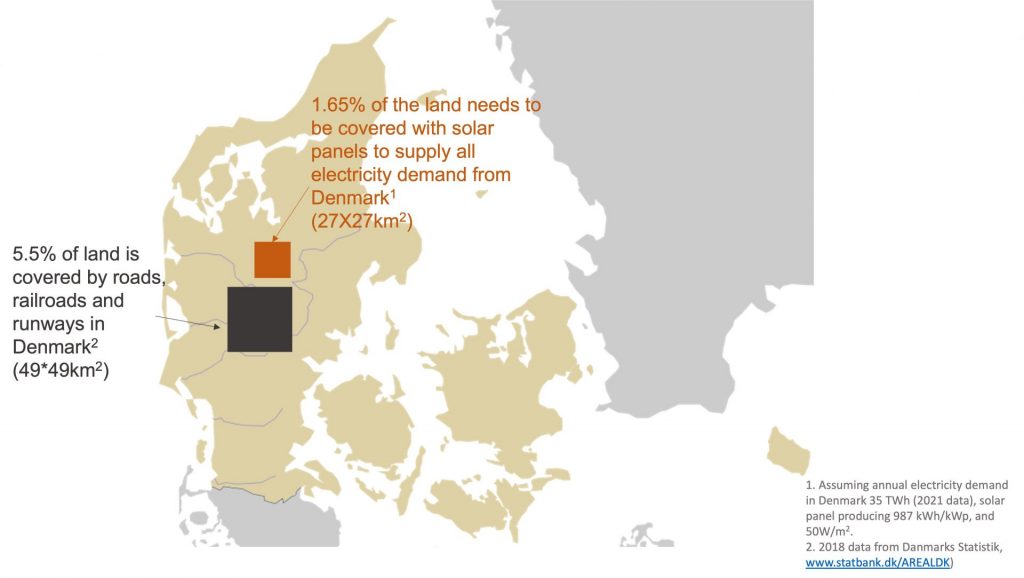Frequently asked questions
Why solar?
The sun is an enormous source of energy. The energy contained in the sunlight heats the Earth, generates wind and other weather phenomena, and is used by plants to drive photosynthesis. There is a lot of energy in sunshine: enough to power all human energy needs more than 1000 times over, if it could all be collected. Because of this, there is a lot of potential for people to use solar energy, especially by generating electricity through solar cells.
But in Denmark?
Solar cells have great potential in Denmark, especially during summer when the days are longer, and the solar radiation is higher. In Denmark, a 1 kW solar system produces about 900-1,000 kWh electricity in a year.

What about winter?
Obviously, there is a difference between summer and winter when it comes to the output of solar energy system in Denmark. On the grid level, wind energy will be important to pick up the slack in winter months. It is shown that having both solar and wind energy is much cheaper than having solar or wind alone because the two technologies help to balance each other.
How much land is required if all of Denmark's electricity demand is supplied by solar energy?
Solar energy systems will require land. However, for Denmark to produce all of its electricity (35 TWh/y) using only solar photovoltaics, only 1.65% of land area would be needed–only slightly bigger than Bornholm. As a comparison, we can see that we are using around 5.5% of the land today for roads. This number will be even smaller when accounting for wind generation and solar PV on rooftops. In addition, solar energy systems can also make dual use of land when land is limited, such as through agrivoltaics.





